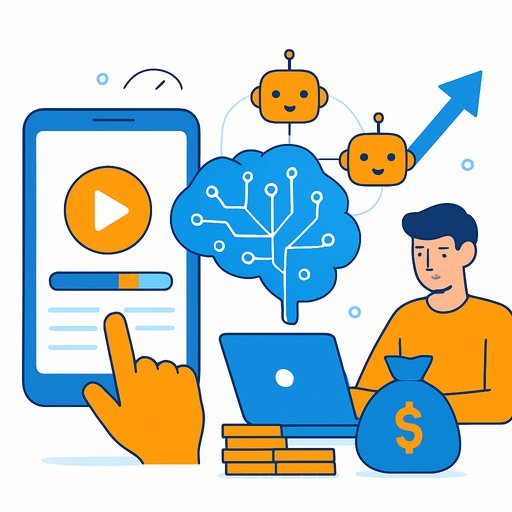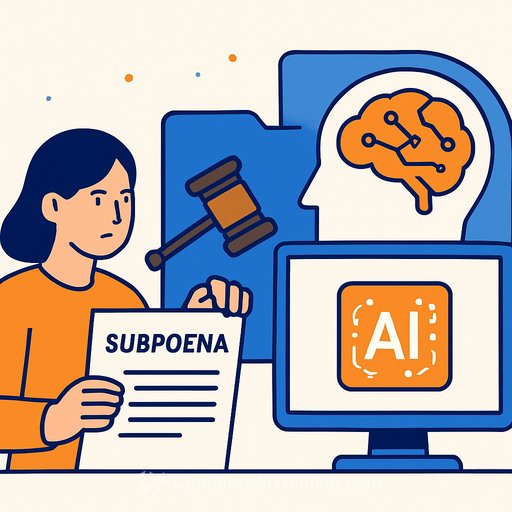Global Fascisms at HKW: A wake-up call for creatives
In 2016, Josh Kline debuted "Unemployment," a body of work about mass job loss from technology and automation-and the collapse of the middle class. Nearly a decade later, those works sit at the entrance of "Global Fascisms" at Haus der Kulturen der Welt in Berlin, a show that argues fascism isn't past tense. As curator Cosmin Costinas writes, "Fascism is here and it is everywhere," and it "has always manipulated aesthetics." In this framing, artificial intelligence becomes "the ultimate tool of nostalgia," drawing entirely on the past to perpetuate itself.
If you work in film, design, writing, music, or visual art, the show lands close to home. It's not theory. It's a mirror.
Unemployment, AI, and the new creative precariat
The first piece you meet is Kline's Unemployed Journalist (Dave)-a 3D-printed figure curled in a recycling bag. It's a blunt image of disposability. Kline said he keeps circling the phrase "human capital" and what it implies: if people become resources, that capital can be spent, used up, and discarded like waste.
That concern has only grown. He now thinks about "creatives losing their jobs" as AI image and video generators-Midjourney, Stable Diffusion, and others-move into studios and newsrooms. In Desperation Dilation, a shopping cart overflows with trash bags of silicone and plastic forms, echoing scenes in New York and Hong Kong where people collect cans for pennies. His question cuts deep: what kind of society reduces its elders to scavengers?
How fascism sells itself-and why that matters for your work
The exhibition tracks how fascist ideologies make themselves attractive: the glow of a "golden past," the spectacle of mass media, the cool veneer of new technology. If AI is nostalgia on autopilot, the risk for creatives is obvious-derivative work and an economy that treats makers as interchangeable. Understanding how aesthetics get weaponized helps you spot where your own practice is being pulled off course.
For context on the ideology itself, see this overview of fascism. For details on the venue, start with Haus der Kulturen der Welt.
Living memory: Gülsün Karamustafa's witness
At 78, Turkish artist Gülsün Karamustafa anchors the show. In her photograph Stage, she and her husband stand in court awaiting a sentence after Turkey's 1971 military coup; a rotating projection casts the words "stage, control, regime, ideology" like a searchlight. Earlier works such as Soldier and Window carry the tension of domestic life under pressure in the '70s and '80s.
Her newest piece, Reminder (2025), is a 25-panel mural that compresses the first 25 years of this century into protest images. The message is plain: don't repeat the same mistakes.
Surveillance is not neutral
Technology and oversight tie the show together, from Karamustafa's history to Kline's future focus. Julia Scher's installation Danger Dirty Data, Tell Your Story (2025) meets visitors with repurposed surveillance cameras at the entrance, plus a CCTV station that invites you to type your own data-narrative. Kline sees kinship in these concerns: systems sold as helpful can be used to control and discard.
History's warning shot: Weimar to now
Kline drew heavily on the Weimar period, where mass unemployment helped destabilize the working and middle classes-fertile ground for Hitler's rise. He also made these works during the 2016 U.S. presidential campaign, noting how certain rallies echoed the aesthetics of 20th-century fascism. With tech leaders forecasting white-collar job cuts from AI, he asks the question we should all be asking: what happens if even more people are thrown into precarity?
From Ukraine: absurdity laid bare
Sana Shahmuradova Tanska's paintings, made after the 2022 invasion of Ukraine, point out how the language of fascism is getting "less and less sophisticated"-almost literal. In Negotiations, headless figures sit at a table; one has already been killed, yet the performance goes on. It reads as the absurdity-and uselessness-of pretending there's good faith across that table.
What this means for your creative career
- Protect your income. Mix clients, formats, and IP. Add subscriptions, workshops, limited editions, or licensing so one algorithm or buyer can't pull the rug.
- Make your value legible. Share process: drafts, references, decision trees. Give context a prompt can't fake-taste, judgment, lived experience.
- Use AI without becoming replaceable. Keep it for moodboards, variations, and speed-keep final calls and story yours. If you need a structured path, browse AI courses by job.
- Write better contracts. Add AI-disclosure clauses, usage limits, kill fees, and minimums. Push for credit and fair rates when AI touches your work.
- Organize with peers. Share rate cards, blacklist exploitative terms, pool resources (legal, accounting, PR). Collective standards beat quiet suffering.
- Reduce platform risk. Build direct channels-newsletter, SMS, in-person shows, local print runs. Distribution you own is insulation against sudden policy shifts.
- Publish your ethics. A one-page policy on dataset consent, disclosure, and where you will or won't use AI sets expectations and attracts aligned clients.
See it in person
Global Fascisms is on view at Haus der Kulturen der Welt in Berlin through 7 December, 2025. It's a tough, necessary show-and a clear prompt to make work that stands on human judgment, not borrowed nostalgia.
Your membership also unlocks:





